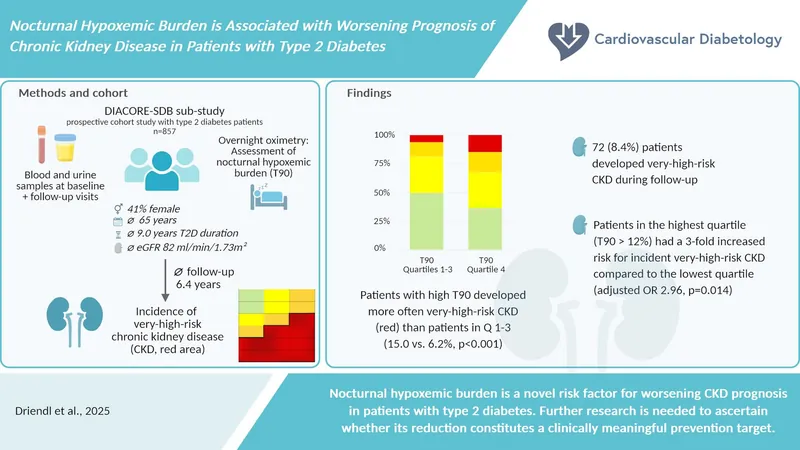
Unveiling the Link: Metabolic Syndrome Boosts Parkinson's Disease Risk by 40%!
2025-08-25
Author: Li
A Growing Global Concern
Surprisingly, nearly one-third of the world's population—around 31%—is grappling with metabolic syndrome, a health condition that packs a punch by combining issues like high blood pressure and abdominal obesity.
New Revelations from Groundbreaking Research
Recent research reveals that metabolic syndrome significantly heightens the risk of developing Parkinson's disease by a staggering 40%. This alarming correlation, explored in a study published in the renowned journal Neurology, underscores the pressing need to shift our focus to metabolic health.
What is Metabolic Syndrome?
Metabolic syndrome isn't just a catchy term; it's a serious cluster of health issues. Defined as having at least three conditions from abdominal obesity, elevated blood sugar, high blood pressure, hypertriglyceridemia, and low HDL cholesterol, it serves as a red flag for several severe health problems, including type 2 diabetes and strokes.
Insights from Extensive Data Analysis
Researchers examined medical records from over 467,000 individuals, averaging 57 years old, tracked for 15 years. Out of these, 38% were diagnosed with metabolic syndrome. The findings? Those with this syndrome were notably more prone to developing Parkinson's disease compared to those without.
The Genetic Connection
Dr. Weili Xu, a leading researcher in geriatric epidemiology, highlighted an intriguing finding: individuals with both metabolic syndrome and a genetic predisposition for Parkinson's face an even greater risk. This suggests that managing metabolic health may be crucial for those with a genetic vulnerability to the disease.
Timely Intervention is Key
Experts like Dr. Michael S. Okun emphasize the need to treat metabolic syndrome not merely as a cardiac risk but also as a potential brain health threat. He points out that factors like abdominal obesity and high blood sugar could serve as accelerators for neurodegeneration.
Hope for Prevention
The study opens a new frontier in preventing Parkinson's disease. Researchers advocate that by addressing metabolic health—tackling obesity, hypertension, and glucose levels—we may delay the onset of Parkinson’s, especially in at-risk populations.
A Broader Perspective on Health
As Dr. Daniel Truong notes, the implications are profound. Metabolic syndrome's influence extends beyond vascular concerns, potentially leading to broader systemic disorders with neurological consequences. By pinpointing which health conditions predispose individuals to Parkinson's disease, proactive measures could be taken for early intervention.
Conclusion: A Call to Action
In light of these findings, the message is clear: managing metabolic syndrome could be instrumental in reducing Parkinson’s disease incidence. As this body of research grows, health professionals are encouraged to prioritize metabolic health to safeguard brain function and overall well-being.



 Brasil (PT)
Brasil (PT)
 Canada (EN)
Canada (EN)
 Chile (ES)
Chile (ES)
 Česko (CS)
Česko (CS)
 대한민국 (KO)
대한민국 (KO)
 España (ES)
España (ES)
 France (FR)
France (FR)
 Hong Kong (EN)
Hong Kong (EN)
 Italia (IT)
Italia (IT)
 日本 (JA)
日本 (JA)
 Magyarország (HU)
Magyarország (HU)
 Norge (NO)
Norge (NO)
 Polska (PL)
Polska (PL)
 Schweiz (DE)
Schweiz (DE)
 Singapore (EN)
Singapore (EN)
 Sverige (SV)
Sverige (SV)
 Suomi (FI)
Suomi (FI)
 Türkiye (TR)
Türkiye (TR)
 الإمارات العربية المتحدة (AR)
الإمارات العربية المتحدة (AR)